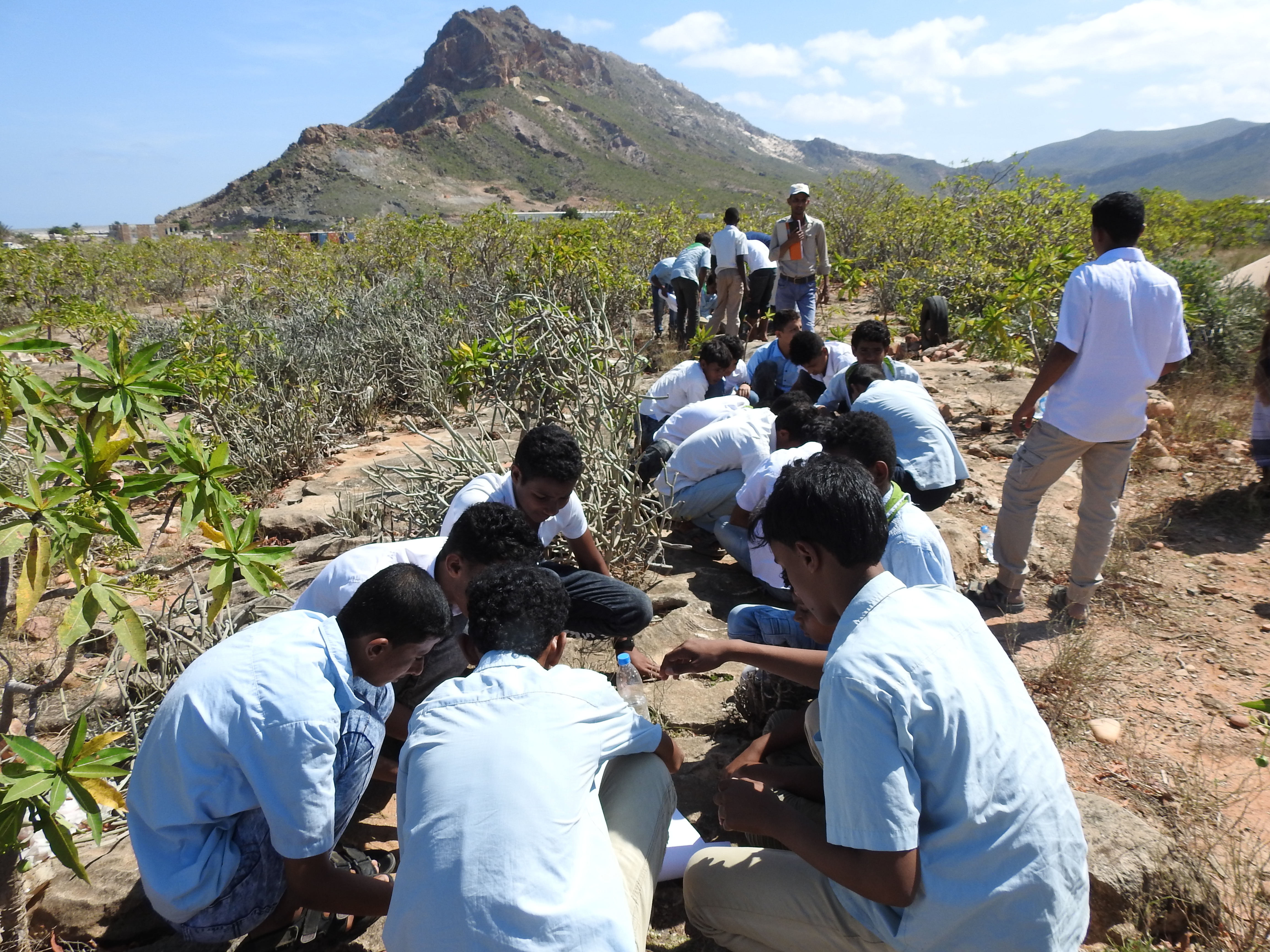

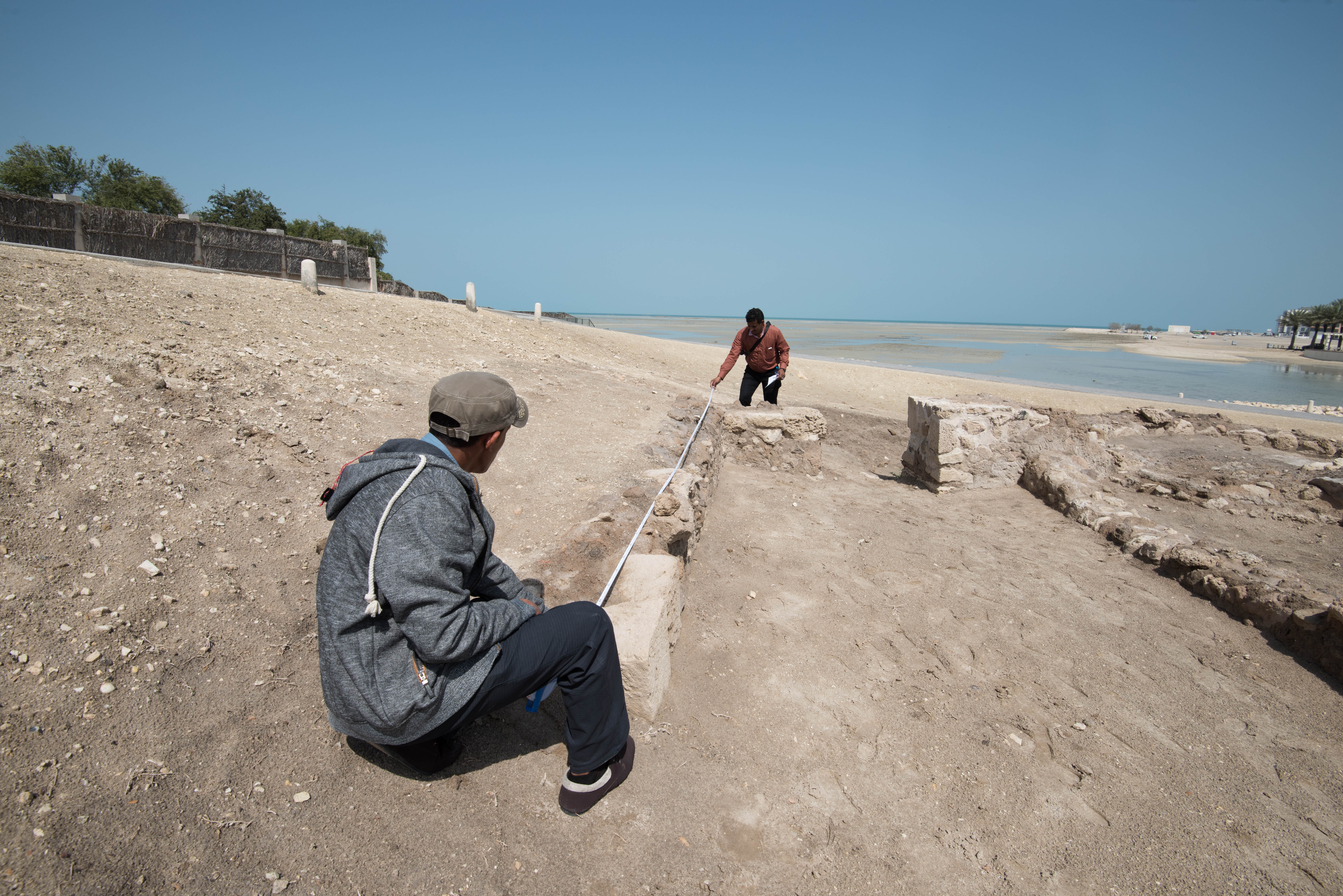
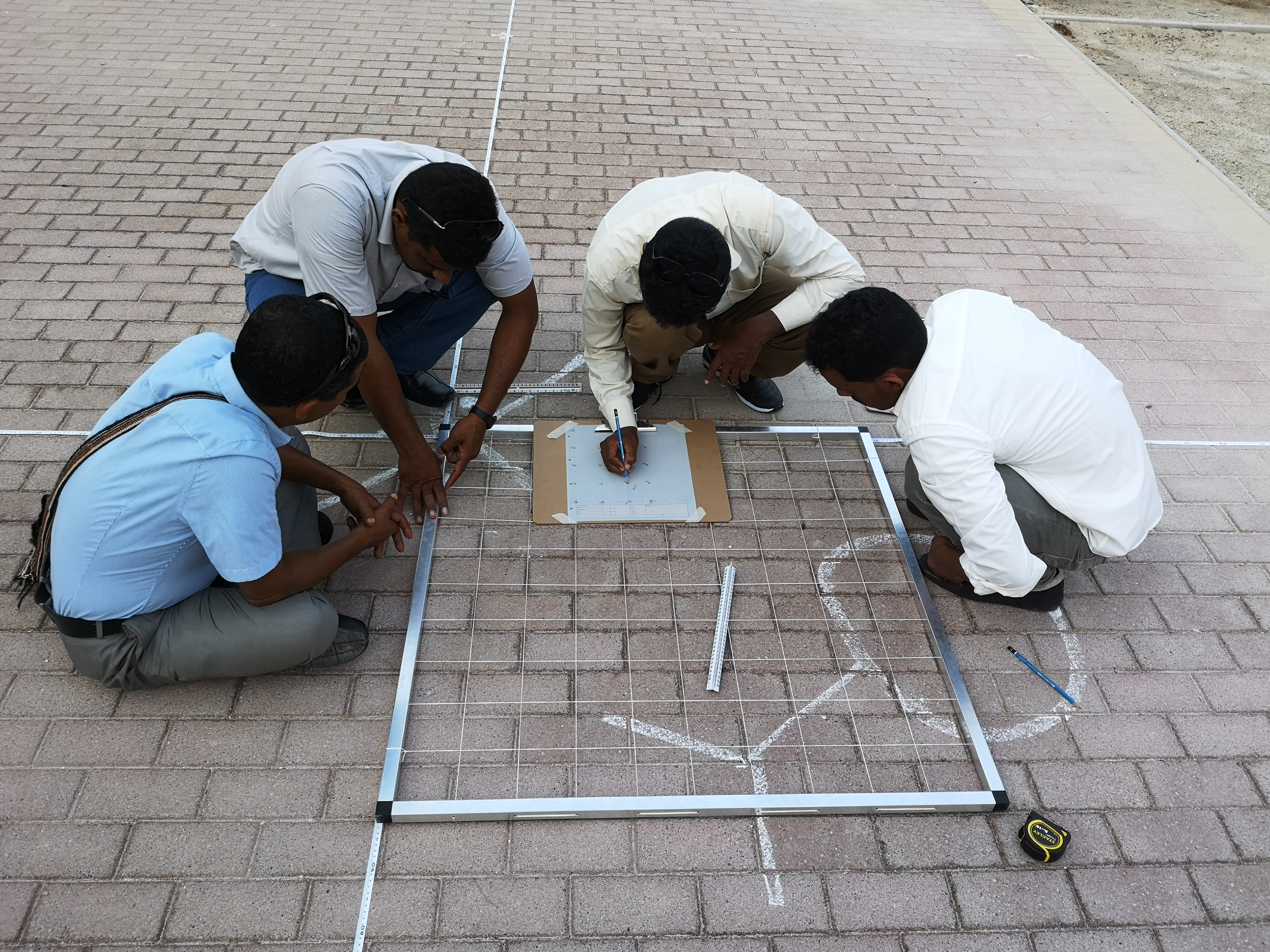
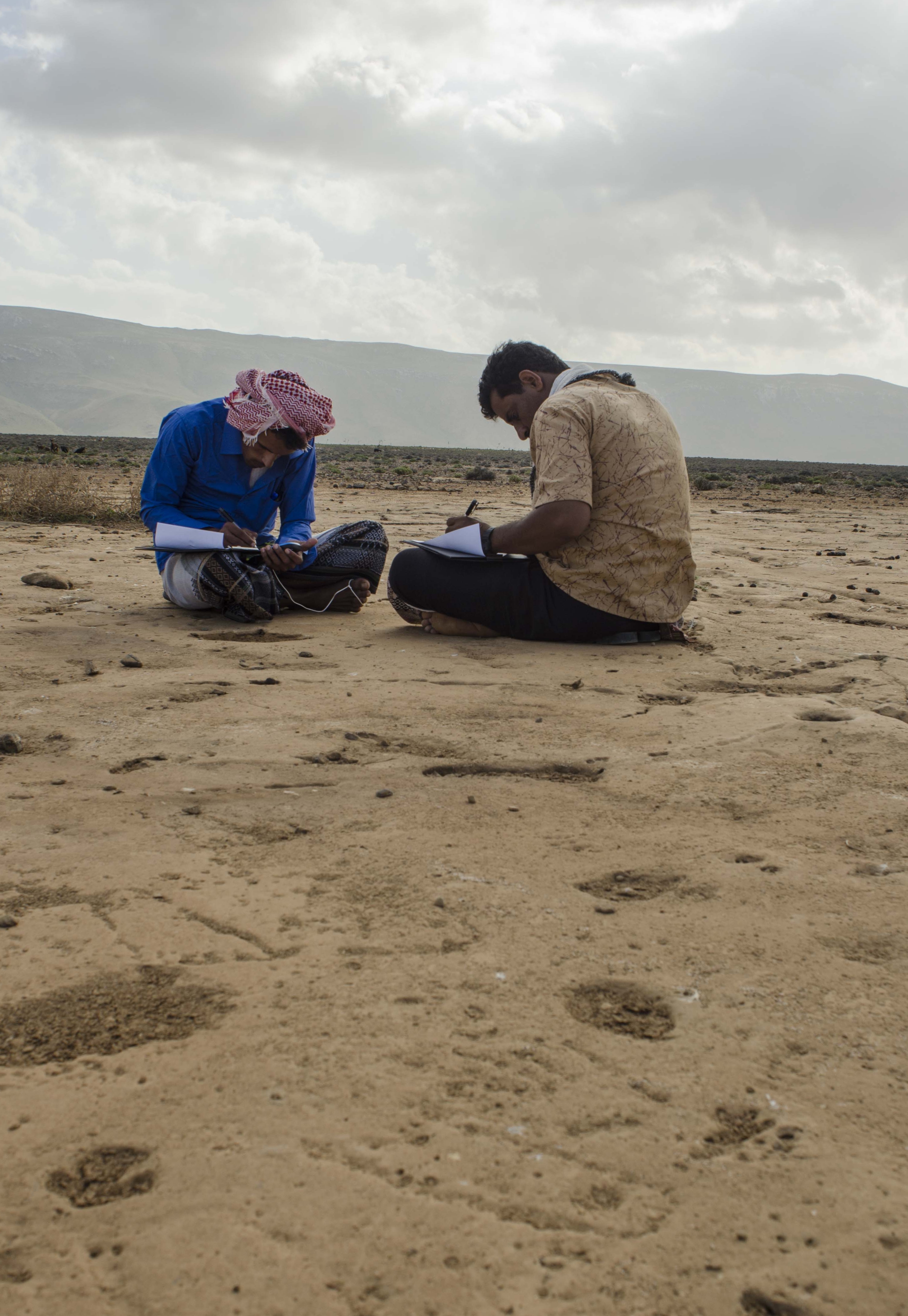
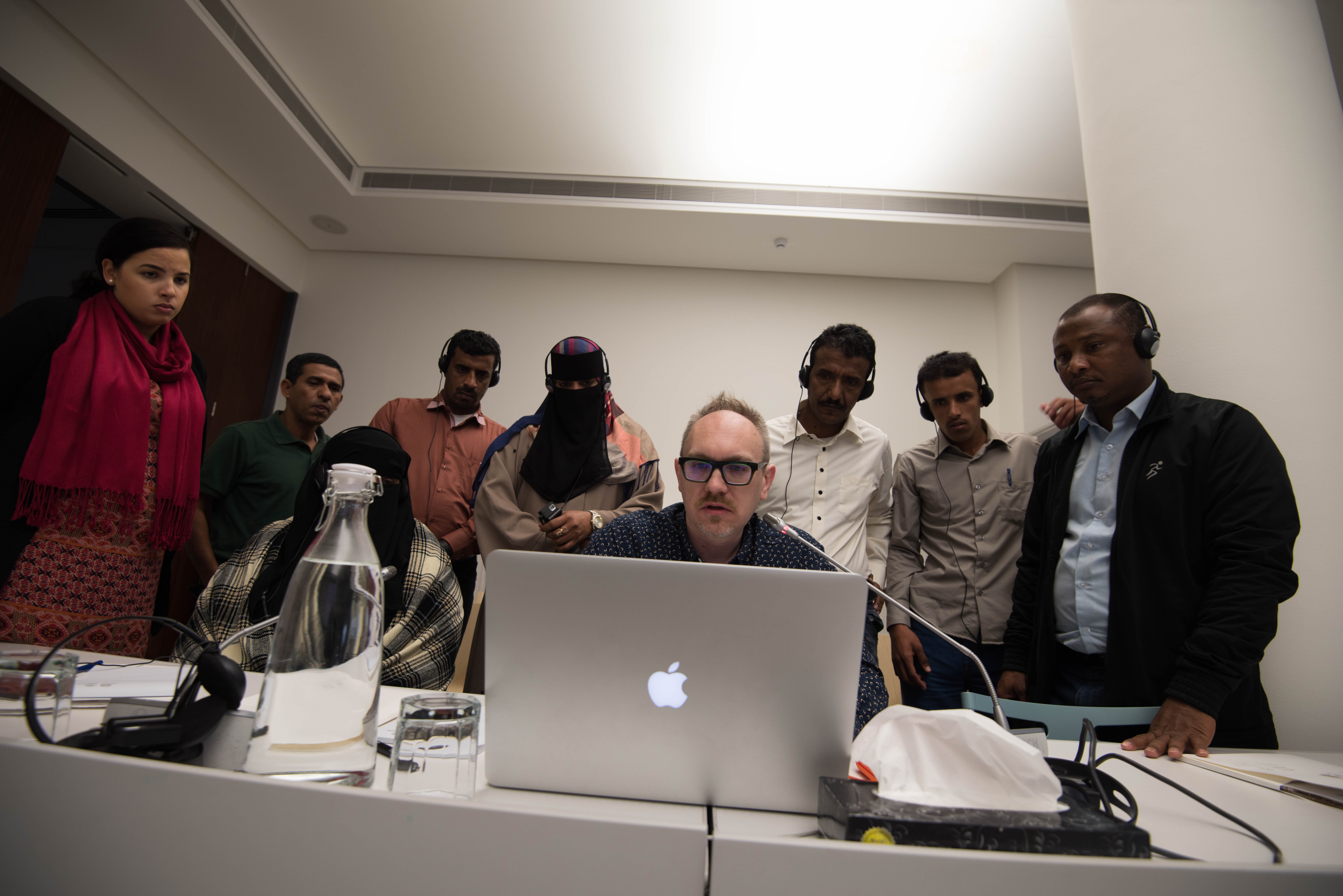
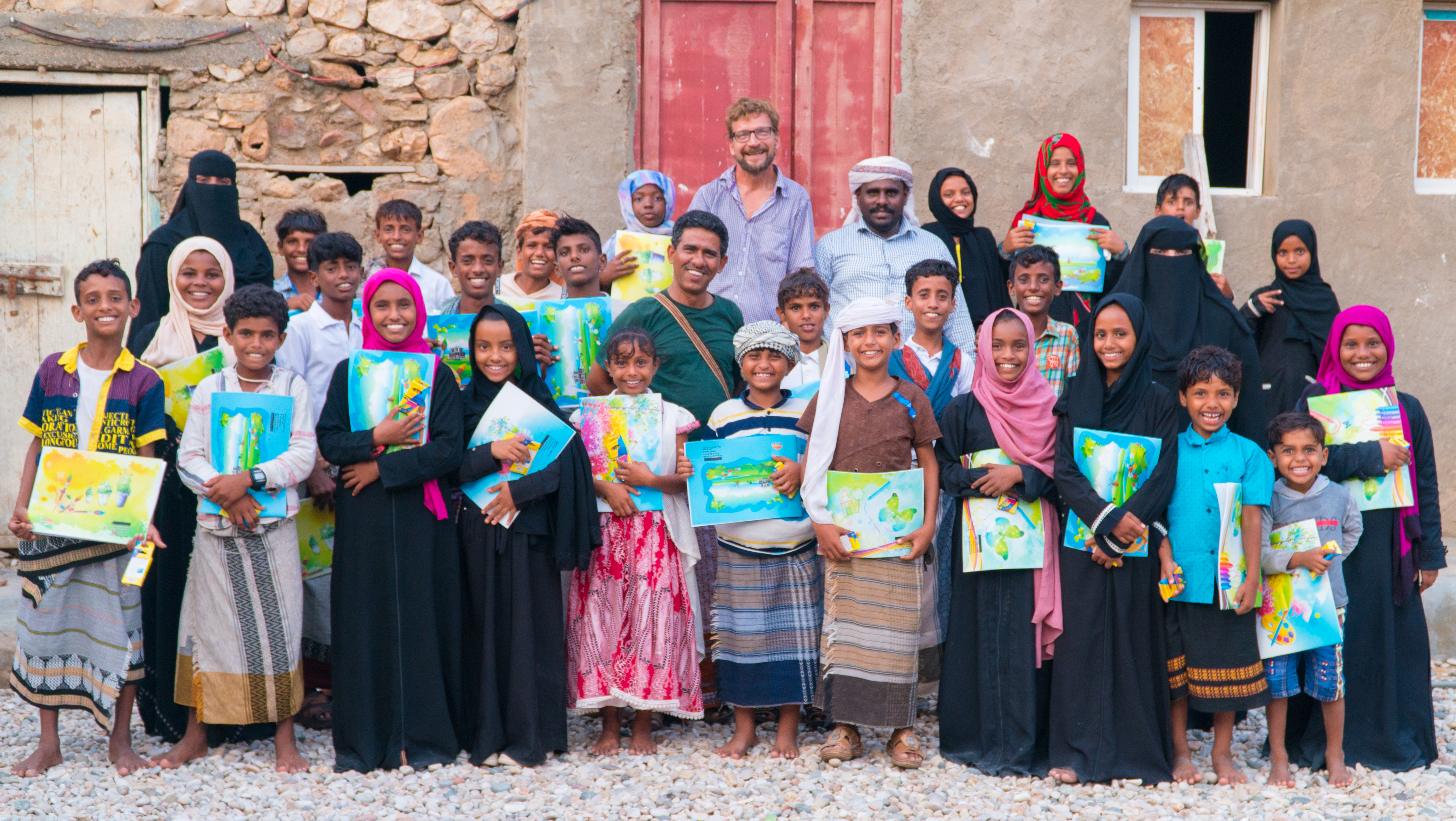
Local capacity development and awareness raising is at the heart of the Soqotra Heritage Project which includes both training of heritage professionals and of members of local communities. Building on existing local capacity is fundamental for the long term implementation of effective conservation and management efforts with particular focus on ensuring the inclusion of heritage in sustainable local development as well as in ensuring the sustainability of the local communities.
Between 2018-2020 the project team members met at the Arab Regional Centre for World Heritage in Manama, Bahrain, four times for training workshops on recognizing, documenting and recording cultural heritage on Soqotra. Training in documenting cultural heritage included detailed survey methods for a range of sites, including specialist training in recording rock art and in the use of Kite Aerial Photography. Recording intangible heritage included detailed training in cinematography to enable the full detail of traditional practices to be brought to life. Further training in education and awareness techniques, presentation, and story-telling also featured strongly. Additionally, interested members of the Soqotri community have been directly involved in documentation of cultural heritage assets.
The first enabling factor is to ensure that the requirements of the local team were met and matched to strategic outcomes agreed by project partners and stakeholders.
This was further supported by the involvement on the ground of ARC-WH’s Project Coordinator for Socotra who is fluent in English, Arabic and Soqotri, facilitating the communication and knowledge transmission.
The availability of travel funds to conduct face-to-face and in situ training is fundamental to ensure the effectiveness of these activities.
- Good and inclusive capacity building activities requires close collaboration between project partners that bring complementary expertise.
- The specific inclusion of women in the capacity building programme, allowing them to expand their technical knowledge is a clear rarity in an Indigenous society such as it exists in Soqotra, where women traditionally refrain from (or not always benefit from equal opportunities) having key roles in public activities. The inclusion of Soqotri women gave access to information sources which would have not been accessible otherwise.
- It is critical to collect feedbacks throughout the training process to ensure that team members have the required skills, and also experience to pass skills on to communities and local professionals.
- High quality translation services are necessary to be able to adequately communicate and engage with communities and local actors. Additionally, the direct involvement of heritage professionals with Indigenous language skills is a fundamental asset for the effective delivery of training and capacity building.